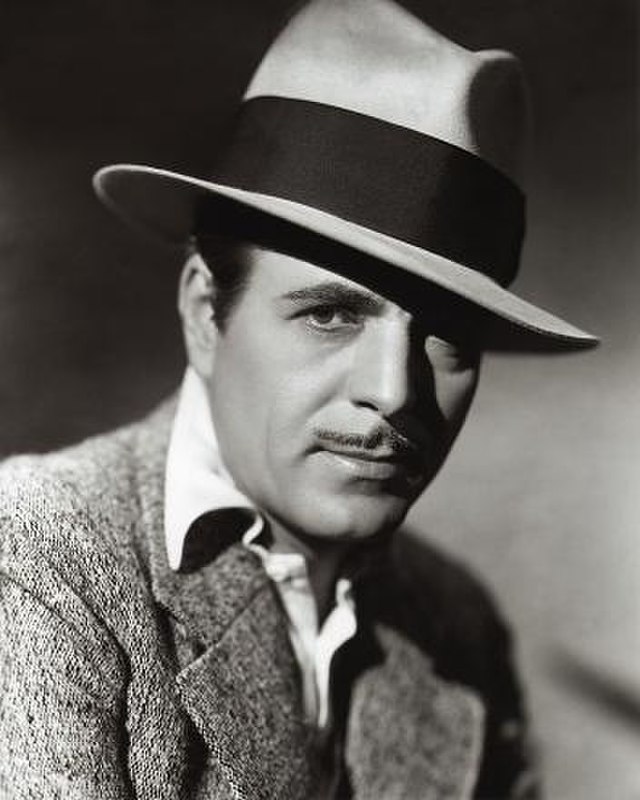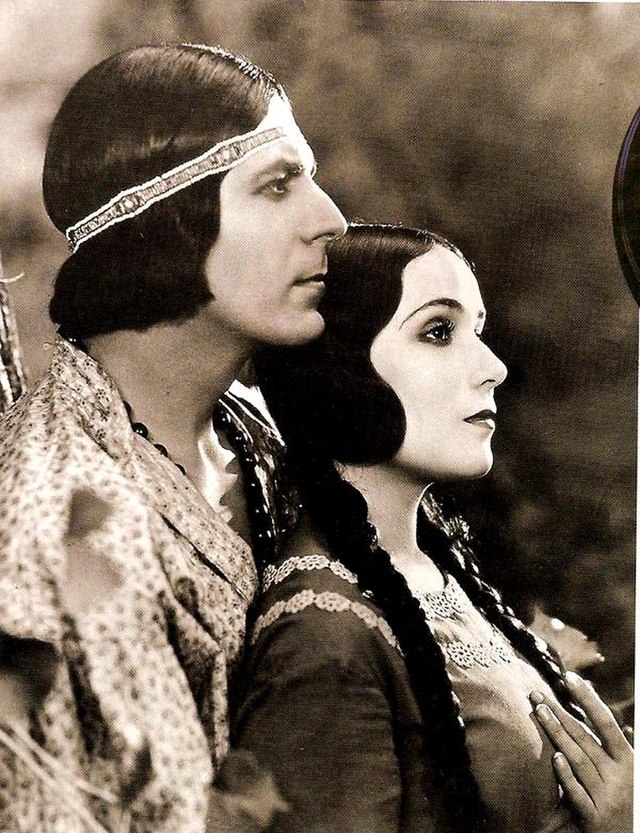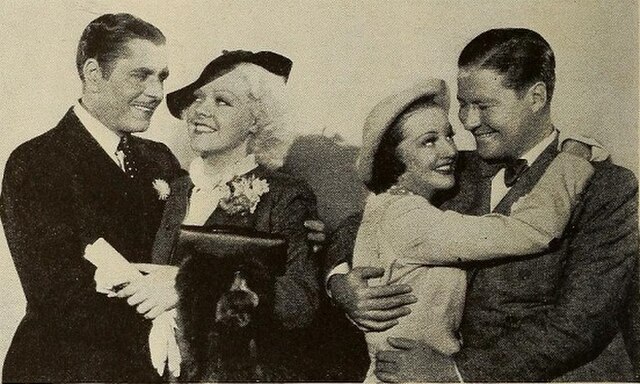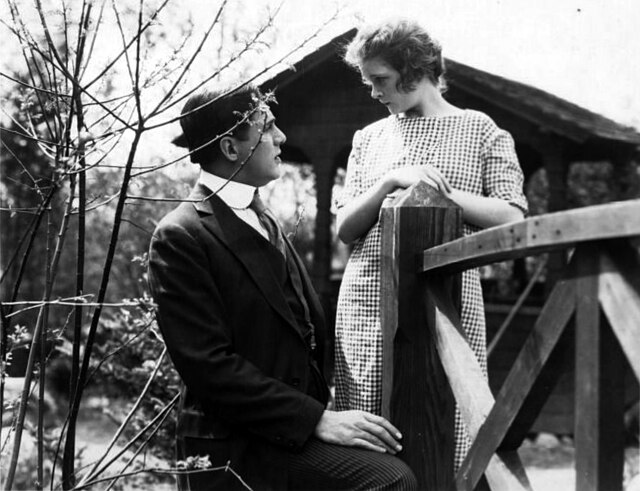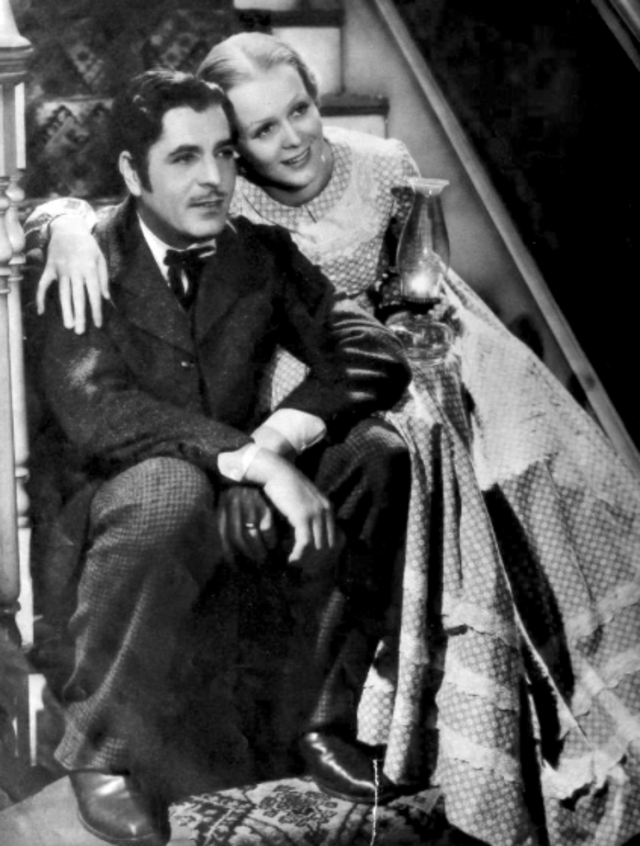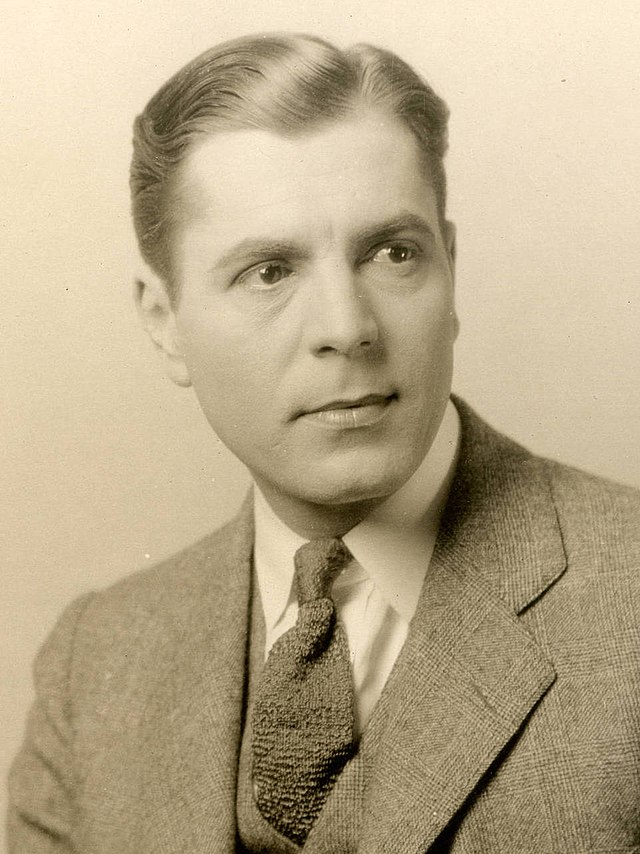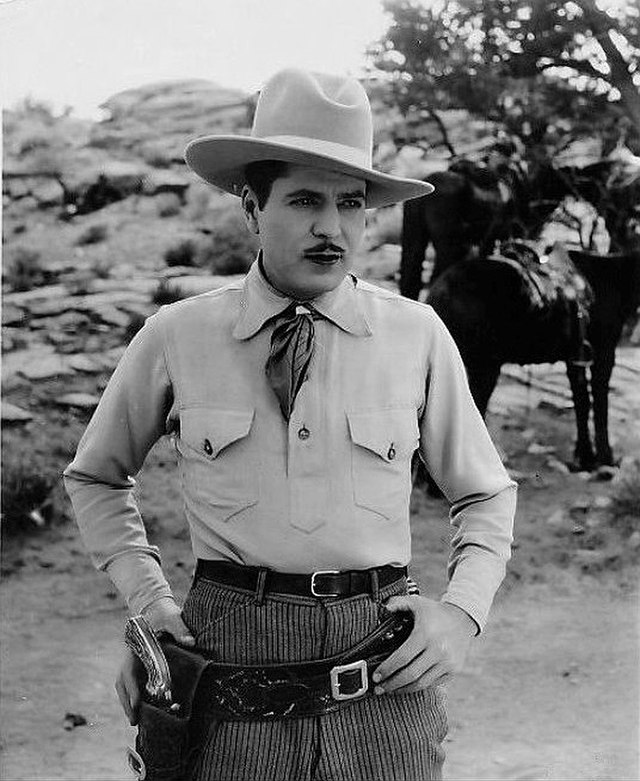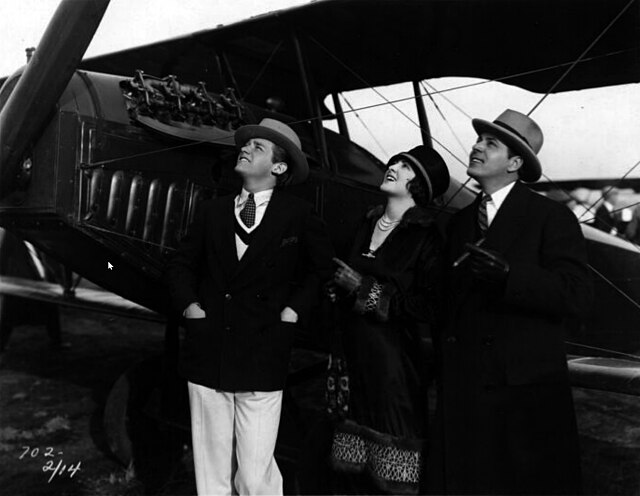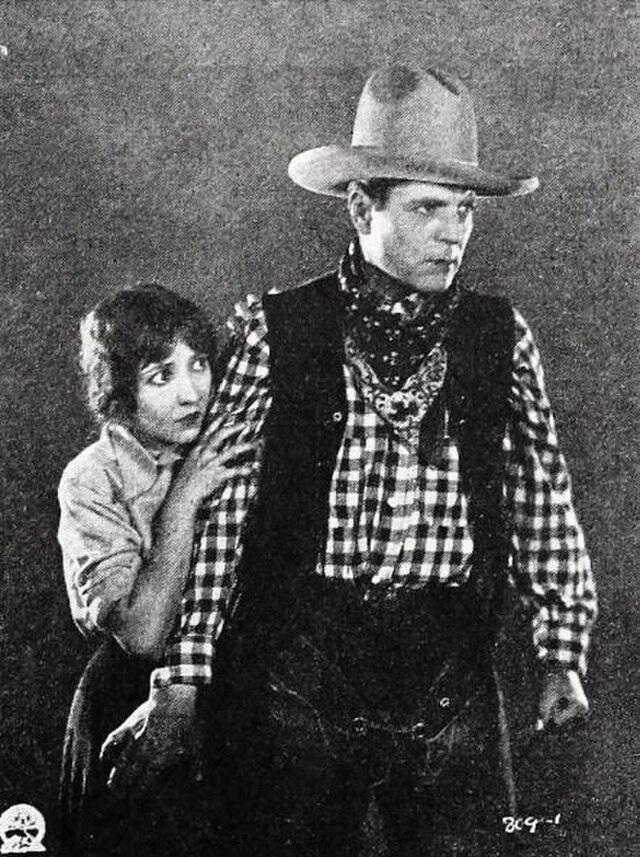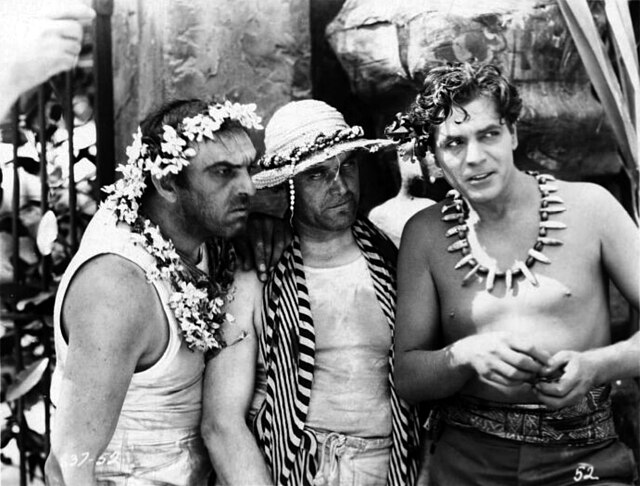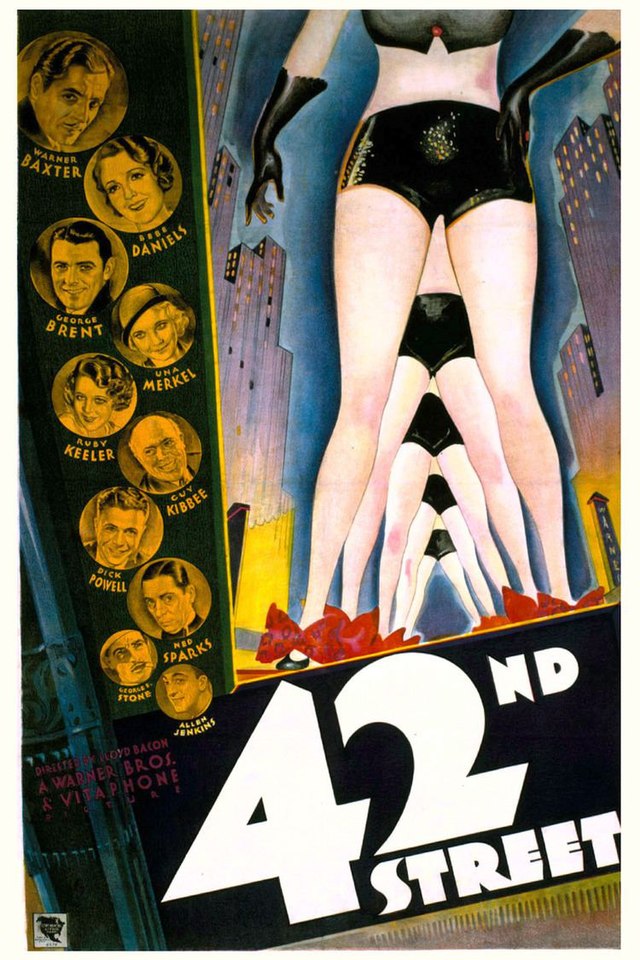Warner Baxter
back| Full Name | Warner Leroy Baxter |
| Stage Name | Warner Baxter |
| Born | March 29, 1889 |
| Birthplace | Columbus, Ohio, USA |
| Died | May 7, 1951 |
| Buried | Forest Lawn Memorial Park, Glendale, California, USA |
| Married to | Winifred Bryson (1926–his death in 1951) |
| Children | None |
| Notable films | In Old Arizona (1928) - 42nd Street (1933) - The Cisco Kid series - Penthouse (1933) |
Warner Baxter
The Gentleman Actor of Hollywood’s Golden Age
Warner Baxter (1889–1951) was a trailblazing Hollywood actor known for his transition from silent films to talkies. Born in Columbus, Ohio, he overcame early hardships, including the 1906 San Francisco earthquake, to pursue a career in acting.
He gained fame in silent films like The Great Gatsby (1926) and achieved stardom with In Old Arizona (1928), becoming the first actor to win an Academy Award for a Western role as The Cisco Kid.
Baxter’s versatility shone in iconic films like 42nd Street (1933) and the Crime Doctor series of the 1940s. Renowned for his suave demeanor, vocal mastery, and emotional depth, he was admired by peers and audiences alike.
Related
Warner Baxter (1889 – 1951)
Biography and Movie Career
Warner Leroy Baxter, born on March 29, 1889, in Columbus, Ohio, was one of the brightest stars of early Hollywood. Known for his versatility, charisma, and dedication to his craft, he left an indelible mark on the world of cinema. His journey from a humble childhood to becoming an Academy Award-winning actor is a story of talent, resilience, and passion.
________________________________________
Early Years
Warner Baxter's early life was shaped by both promise and tragedy. His father passed away when Warner was young, leaving his mother to raise him and his younger sister alone. In 1898, the family moved to San Francisco, but the devastating 1906 earthquake forced them to relocate again, this time to Oakland. These early struggles instilled in Baxter a sense of determination and resilience.
A natural performer, Baxter was drawn to the arts and began acting in amateur theater productions. His confidence and natural charm soon propelled him toward professional opportunities. Before long, he was performing in traveling stock theater companies, honing his craft and dreaming of greater success.
________________________________________
Path Toward Stardom
In the early 1920s, Warner Baxter moved to Hollywood, where the burgeoning film industry was transforming entertainment. He began appearing in silent films, quickly earning a reputation for his emotive acting and on-screen magnetism. His first major break came in The Great Gatsby (1926), where he played Tom Buchanan in the silent adaptation of F. Scott Fitzgerald’s novel.
Baxter's career took a monumental leap with the advent of sound films. His rich, distinctive voice made him a natural fit for the new medium, unlike many silent-era actors who struggled with the transition. His most celebrated role came in 1928 with In Old Arizona, the first all-talking Western, where he portrayed the charming yet dangerous Cisco Kid. This performance earned him the Academy Award for Best Actor, cementing his place as a Hollywood leading man.
During the 1930s, Baxter appeared in a string of hit films, including 42nd Street (1933) and Penthouse (1933). Known for his suave demeanor and ability to portray complex characters, he became one of the most sought-after actors of the era. His versatility allowed him to shine in both dramatic and comedic roles, endearing him to audiences and critics alike.
________________________________________
Personal Life and Marriage
Warner Baxter married actress Winifred Bryson in 1926, and the two remained together until his death in 1951. Their marriage was widely regarded as stable and supportive, a rarity in the fast-paced, often turbulent world of Hollywood. Although the couple never had children, they shared a deep bond, and Bryson was a constant source of support for Baxter throughout his life.
Off-screen, Baxter was known for his quiet, introspective nature. He preferred a private life away from the glitz and glamour of Hollywood, enjoying pursuits such as gardening, writing, and playing golf. He was also deeply committed to charitable work, often supporting causes that aided struggling actors and filmmakers.
________________________________________
Passions and Legacy
Baxter's passion for acting was matched only by his love for innovation. In addition to his work as an actor, he held several patents for film-related technologies. One of his inventions was a rotating camera stand, which was used to achieve dynamic shots in early films. This demonstrated his keen interest in the technical side of filmmaking, a rarity for actors of his time.
As he aged, Baxter's career shifted to roles that reflected his maturity. In the 1940s, he starred in the popular Crime Doctor series, playing Dr. Robert Ordway, a criminal-turned-psychologist. These films introduced him to a new generation of fans and further showcased his ability to adapt to changing tastes in cinema.
________________________________________
Decline and Death
Despite his professional success, Warner Baxter’s later years were marked by health struggles. He suffered from severe arthritis, which caused chronic, debilitating pain. Desperate for relief, he underwent a lobotomy in 1951, a controversial procedure intended to alleviate his suffering. Tragically, the operation did little to improve his condition.
Warner Baxter passed away on May 7, 1951, at the age of 62, due to complications following the surgery. His death marked the end of an era for Hollywood, as he was one of the last major stars to bridge the silent and sound film eras.
________________________________________
Legacy
Warner Baxter's contributions to cinema remain timeless. As the first actor to win an Academy Award for a Western role, he set a standard for performances in the genre. His ability to navigate the changing landscape of Hollywood, moving from silent films to talkies with ease, demonstrated his talent and adaptability. Off-screen, his dedication to innovation and philanthropy revealed a man of depth and vision.
Today, Baxter is remembered as one of the greats of early Hollywood—a trailblazer whose work continues to inspire actors and filmmakers alike. His legacy endures through his iconic performances and his pioneering spirit, a testament to his remarkable life and career.
Video Documentary on Walter Baxter
Warner Baxter’s Acting Style: A Blend of Charm, Intensity, and Refinement
Warner Baxter’s acting style was a hallmark of the transitional era between silent films and talkies, characterized by a combination of physical expressiveness, emotional depth, and a resonant vocal presence. His versatility as an actor allowed him to succeed across genres, from Westerns to musicals, thrillers, and dramas. His style was both a product of his time and uniquely his own, marked by the following distinctive qualities:
________________________________________
Physical Expressiveness
Having started in the silent film era, Baxter developed a keen ability to convey emotion through his physicality. In silent films such as The Great Gatsby (1926), his use of gestures, facial expressions, and body language communicated complex emotions without the aid of dialogue. This early training gave him a magnetic on-screen presence that carried over seamlessly into sound films, where his physicality remained a key element of his performances.
In In Old Arizona (1928), Baxter’s portrayal of The Cisco Kid showcases his ability to blend charm and danger through subtle shifts in posture and expression. His fluid movements and confident demeanor lent authenticity to his roles, particularly in action sequences.
________________________________________
Vocal Mastery
The advent of sound films revealed another layer of Baxter’s talent: his rich, distinctive voice. Unlike many silent film actors who struggled with dialogue delivery, Baxter embraced the spoken word with ease. His voice carried a natural authority, yet it could be modulated to convey vulnerability or charm, depending on the role.
As Julian Marsh in 42nd Street (1933), Baxter’s voice was commanding and authoritative, perfectly fitting the role of a Broadway director. His ability to use tone and cadence to reflect his character’s emotions added depth to his performances, drawing audiences further into the story.
________________________________________
Emotional Depth
Baxter had an uncanny ability to portray characters with layered personalities. Whether playing a charming outlaw in In Old Arizona or a reformed criminal-turned-psychologist in the Crime Doctor series, he brought nuance to his roles. He excelled at portraying internal conflict, often allowing subtle expressions to suggest what words could not.
His performance in Broadway Bill (1935) is a prime example of his emotional range. As a man torn between familial expectations and his love for horse racing, Baxter captured the inner turmoil of his character with poignancy and authenticity.
________________________________________
Suave and Sophisticated Persona
Baxter often played characters who exuded a suave, sophisticated charm. Whether as a romantic lead or a detective unraveling a mystery, he had a natural charisma that made his performances captivating. His polished demeanor and impeccable style suited the roles of gentlemen, professionals, and leaders, as seen in films like Penthouse (1933) and Just Off Broadway (1942).
This sophistication did not come at the expense of relatability. Baxter had a talent for grounding even the most larger-than-life characters in humanity, making them accessible to audiences.
________________________________________
Adaptability Across Genres
Baxter’s acting style was remarkably adaptable, allowing him to succeed in a wide range of roles. In Westerns like In Old Arizona, he embodied rugged individualism, while in musicals like 42nd Street, he captured the high-energy ambition of the theater world. In the Crime Doctor series, he balanced intelligence and compassion with a touch of mystery, demonstrating his ability to evolve with changing audience tastes.
This adaptability reflected his willingness to take risks and explore new facets of his craft, ensuring his relevance throughout his career.
________________________________________
Pioneering Subtlety
Baxter’s style often leaned toward subtlety rather than overstatement, a quality that distinguished him from many of his contemporaries. In an era when dramatic gestures and heightened expressions were the norm, Baxter’s restrained yet impactful performances stood out. This approach anticipated the more naturalistic acting styles that would dominate Hollywood in later decades.
Awards and Recognition
Warner Baxter's career, spanning the silent and sound film eras, brought him acclaim and recognition for his versatility and contributions to early Hollywood. Though formal awards were less common during his time compared to later decades, Baxter received notable accolades and honors that solidified his status as one of the leading actors of his era. Below is a complete overview of his awards and recognition:
________________________________________
Academy Awards
• 1929 – Best Actor in a Leading Role
In Old Arizona
Warner Baxter won the Academy Award for his performance as The Cisco Kid in this landmark film. It was the first Western with synchronized sound, and Baxter's portrayal of the charming yet roguish outlaw was widely praised. This award was significant, as it established Baxter as one of the premier actors of the early sound era.
________________________________________
Hollywood Walk of Fame
• Star on the Hollywood Walk of Fame
Warner Baxter was honored with a star on the Hollywood Walk of Fame for his contributions to the film industry. His star is located at 6290 Hollywood Boulevard, a testament to his enduring legacy in Hollywood.
________________________________________
Box Office Recognition
• Top Ten Box Office Stars (1930s)
During the height of his career in the early 1930s, Baxter was frequently listed among Hollywood's top box office draws. His films, particularly musicals and thrillers like 42nd Street and Penthouse, were major successes.
________________________________________
Critical Acclaim
While Baxter’s formal awards were limited, he consistently received high praise from critics and audiences for his performances. Notable highlights include:
• Acclaim for his role in 42nd Street (1933), where his portrayal of Julian Marsh was considered one of the defining performances of his career.
• Positive reviews for his role in the Crime Doctor series (1940s), which showcased his ability to adapt to changing cinematic trends.
________________________________________
Industry Leadership and Innovation
• Warner Baxter was also recognized within the industry for his technical contributions to filmmaking. He held several patents for innovations related to camera equipment, reflecting his interest in the technical aspects of the craft. While not an award, these contributions earned him respect among his peers as an actor who went beyond performing to enhance the art of filmmaking.
________________________________________
Posthumous Recognition
• Baxter’s work continues to be celebrated in retrospectives and film history discussions. His Academy Award win and role in In Old Arizona are often highlighted as significant milestones in early Hollywood.
Personal Quotes
On Acting and Film
• "The thing about acting is that you never really stop learning. Every role teaches you something new—about the character, the story, and yourself."
o Reflecting on his approach to acting, Baxter emphasized the craft as a continuous journey of growth and discovery.
• "A good story will always be the star of any film. The actor’s job is to bring that story to life, not to overshadow it."
o Baxter’s humility and respect for storytelling are evident in this quote, showing his belief in the collaborative nature of filmmaking.
• "I think I had a lot of luck. The real work was recognizing it and making the most of it."
o In response to questions about his career success, Baxter often credited luck while acknowledging the effort required to capitalize on opportunities.
________________________________________
On Winning the Academy Award
• "I didn’t even realize what it all meant at first. I just thought, 'Well, I did my best, and people liked it. That’s enough for me.'"
o Baxter’s reaction to winning the Oscar for In Old Arizona reflects his modesty and focus on the craft rather than accolades.
• "An award is a lovely thing, but it’s the audience that tells you if you’ve done your job right."
o He valued audience reception over industry recognition, emphasizing the importance of connecting with viewers.
________________________________________
On Life and Personal Philosophy
• "Life doesn’t give you a script. You’ve got to improvise and hope the critics are kind."
o A playful yet profound observation about the unpredictability of life and the need for adaptability.
• "You don’t have to be loud to be heard. A whisper at the right moment can echo forever."
o This quote reflects his belief in the power of subtlety, both in acting and in life.
• "Find what you love, and you’ll never have to act a day in your life."
o A twist on the famous adage, Baxter humorously nodded to his profession while underscoring the value of passion.
________________________________________
On Hollywood
• "Hollywood is a place where dreams are made, but it’s also where hard work turns those dreams into reality."
o A pragmatic take on the glamour and grit of the film industry.
• "The camera doesn’t lie. It sees everything, even what you try to hide. That’s why honesty is the only thing that works on screen."
o A reflection on the importance of authenticity in acting, which Baxter considered a key to his success.
What Others Said about Warner Baxter
Praise from Co-Stars and Directors
• Margaret Sullavan (Co-star in Only Yesterday, 1933):
o "Warner was the epitome of a gentleman—on and off the set. He treated everyone with respect and had a way of making you feel completely at ease, no matter how tense things got."
• Ruby Keeler (Co-star in 42nd Street, 1933):
o "He had this magnetic energy. Onscreen, he was commanding, but in person, he was soft-spoken and kind. A true professional in every sense of the word."
• Irving Cummings (Director of In Old Arizona, 1928):
o "Warner brought a depth to The Cisco Kid that made the character unforgettable. He understood the nuances of the role and delivered a performance that elevated the entire film."
• Michael Curtiz (Director of Kidnapped, 1938):
o "Baxter had a natural charisma that could carry any film. He was versatile, whether playing a rugged hero or a refined gentleman, and he gave every role his all."
________________________________________
Critical Acclaim
• New York Times (1933, review of 42nd Street):
o "Warner Baxter’s portrayal of Julian Marsh is riveting. His performance captures the desperation and drive of a man who sees theater as both his salvation and his torment."
• Photoplay Magazine (1928, on In Old Arizona):
o "Baxter’s Cisco Kid is a revelation—he brings charm, danger, and humor to the role, making him one of the most compelling figures in recent cinema."
• Variety (1940, on the Crime Doctor series):
o "Baxter’s Dr. Ordway is a fascinating character, and Baxter’s steady, thoughtful performance is what keeps the series engaging for audiences."
________________________________________
Peers on His Work Ethic
• Loretta Young (Actress):
o "Warner had a strong work ethic and always showed up prepared. He was the kind of actor who made everyone else on set want to do better."
• Cary Grant (Actor):
o "Warner was one of those actors you could watch and learn from. He had a presence that could fill the room but never felt overdone."
________________________________________
Remarks on His Personal Character
• Winifred Bryson (His Wife):
o "Warner was a private man, but his kindness and generosity were boundless. He believed in giving back, whether to his colleagues, fans, or the community."
• Cedric Gibbons (Art Director):
o "Baxter wasn’t just an actor; he was a true artist. He appreciated every aspect of filmmaking, from the set design to the final cut, and treated everyone’s contribution with respect."
• Joseph M. Schenck (Producer):
o "Warner was humble despite his success. He understood that being a star wasn’t just about talent; it was about setting an example and carrying yourself with grace."
________________________________________
Legacy Reflections
• Film Historian David Thomson:
o "Warner Baxter was a cornerstone of early Hollywood. His work in In Old Arizona paved the way for the Western genre to thrive in the sound era, and his versatility in films like 42nd Street proved his range as an actor."
• Martin Scorsese (Director):
o "Baxter’s performance in 42nd Street remains iconic. His portrayal of Julian Marsh encapsulated the raw emotion and grit of show business, and it’s a performance that stands the test of time."
Movies with Warner Baxter
1920s
• 1921
Sheltered Daughters – A romantic drama about a sheltered woman who rebels against her overprotective father to find love.
• 1923
Her Own Money – A woman attempts to save her family fortune, showcasing themes of independence and resilience.
• 1926
The Great Gatsby – In this silent adaptation of F. Scott Fitzgerald’s novel, Baxter plays Tom Buchanan, a wealthy but morally corrupt character.
• 1928
In Old Arizona – Baxter stars as The Cisco Kid, a charismatic bandit who falls in love while evading capture. His performance won him an Academy Award for Best Actor.
• 1929
Romance of the Rio Grande – A sequel to In Old Arizona, continuing the adventures of The Cisco Kid.
________________________________________
1930s
• 1930
The Arizona Kid – Another installment in the Cisco Kid series, blending romance and Western adventure.
• 1931
Daddy Long Legs – A romantic drama about an orphan who receives anonymous support from a wealthy benefactor, played by Baxter.
• 1932
The Age of Consent – A college romance exploring the clash between youthful idealism and adult responsibilities.
• 1933
42nd Street – Baxter plays Julian Marsh, a driven Broadway director staging a new musical. A landmark backstage musical.
Penthouse – A crime thriller where Baxter plays a lawyer who turns detective to solve a murder.
• 1934
Such Women Are Dangerous – A dramatic tale of love and betrayal.
• 1935
Broadway Bill – A comedic drama where Baxter portrays a man who sacrifices everything to enter a horse into a major race.
• 1936
To Mary – with Love – A drama chronicling a couple’s struggles during the Great Depression.
• 1937
Vogues of 1938 – A romantic comedy centered around the fashion industry.
• 1938
Kidnapped – Baxter stars in this adaptation of Robert Louis Stevenson’s novel about a young man's adventures in Scotland.
• 1939
Earthbound – A supernatural drama where Baxter plays a man who helps solve his own murder from the afterlife.
________________________________________
1940s
• 1940
The Crime Doctor – The first in a series of crime dramas where Baxter stars as Dr. Robert Ordway, a criminal who reforms and becomes a psychologist.
• 1941–1949
Crime Doctor Series – Baxter starred in nine additional films in this popular series, including:
o The Crime Doctor’s Strangest Case
o The Crime Doctor’s Courage
o Shadows in the Night
These films typically involve Baxter’s character solving complex mysteries while grappling with his own past.
• 1942
Just Off Broadway – A mystery film where Baxter’s character investigates a murder tied to a Broadway production.
________________________________________
1950s
• 1950
State Penitentiary – Baxter’s final film, a prison drama where he portrays a man wrongfully imprisoned, fighting to clear his name.

